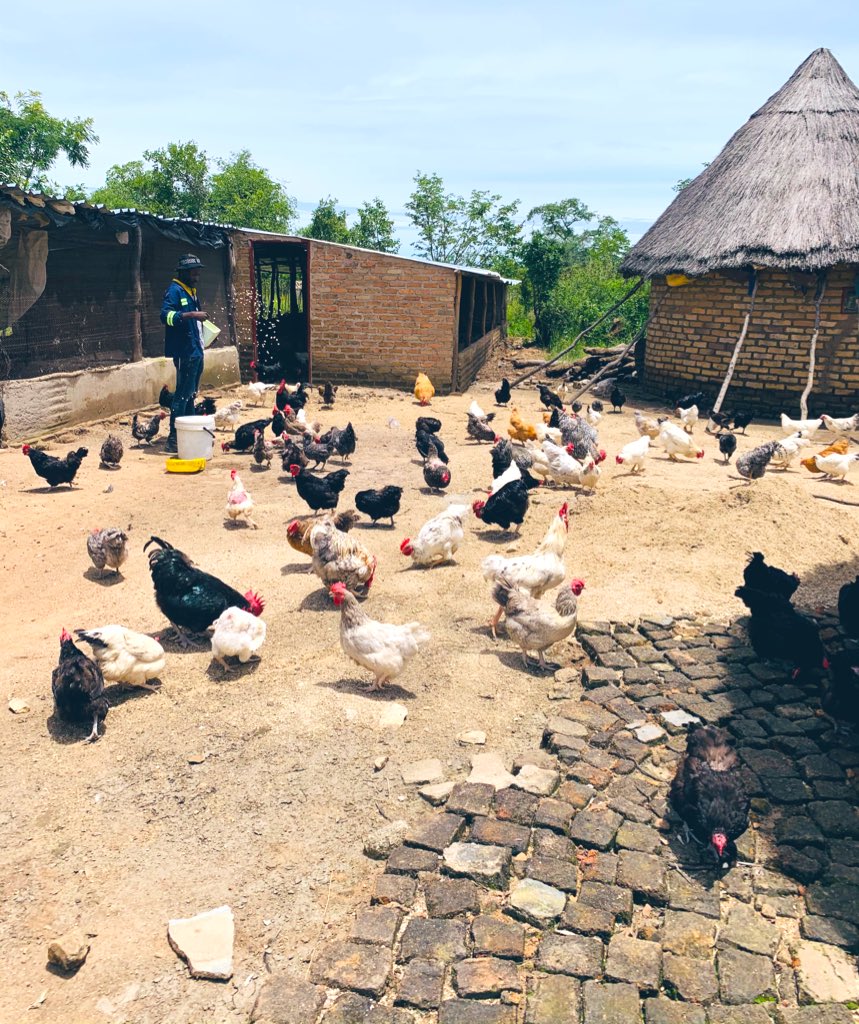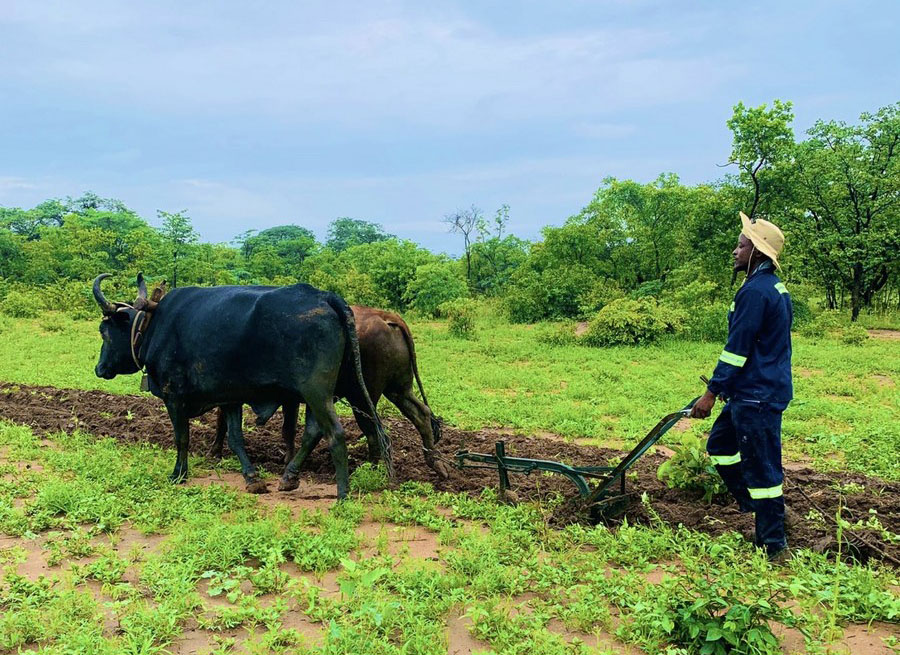HARARE – While agriculture forms an integral part of Zimbabwe’s economy, many young people still think of it as back-breaking labor that offers little economic benefit. However, things are slowly changing, a growing number of young people are starting to see agriculture as a viable career option.
Twenty-eight-year-old Terence Maphosa is among a new generation of agri-entrepreneurs who are invigorating the agriculture sector with their innovative initiatives.
A political science graduate from the University of Zimbabwe, Maphosa’s dream was to land a white-collar job in the city after finishing college.
A year and a half after graduating from college, circumstances pushed Maphosa to start breeding and selling indigenous chicken breeds popularly known as roadrunners at his rural home in Mhondoro-Ngezi, about 170km from the capital Harare.
Roadrunner is a colloquial name for a free-range exotic breed of chicken that scavenges for food. Their meat is tougher and is considered by many to be tastier than broilers.
His breeds include the Black Australorp, Koekoek, Light Sussex, Kuroila and Jersey Giant.
While many young people in Zimbabwe view agriculture as the domain for the less educated and consider rural to urban migration as the only ticket out of poverty, Maphosa has made a name for himself in the village.
Apart from rearing exotic chicken, Maphosa is also involved in crop farming – but he focuses on maize, sunflowers, sorghum and soya crops as a means to reduce the costs of buying feeds.
Indigenous chickens have gained popularity among Zimbabweans as they offer a healthier organic option and a business opportunity.
Unlike broilers, the birds are cheaper to rear as they thrive on natural foods such as grains, worms and insects.

Maphosa’s success in agribusiness has caught the attention of many young people on social media where he regularly posts about his day-to-day life.
“A lot of youngsters are now appreciating farming, and slowly we are getting there,” he told Xinhua.
“The reason why our generation doesn’t see farming as something lucrative is because of our background. When growing up, we were taught to go to school, to be doctors, to be nurses, to be lawyers, to be engineers, nobody pushed us to be farmers. So apparently, they did not push us to be practical, they pushed us to work those white-collar jobs,” he said.
Thanks to farmers such as Maphosa, a resurgence of interest among young farmers is happening, more and more young people are starting to see agriculture as a viable career path.
“People are now showing the desire and hunger to go into farming, specifically in my field, the roadrunner business,” he said.
Maphosa said agriculture’s image is changing, youth are now turning to farming and value addition of farm produce.
“The way we are doing things, I wouldn’t deny we are making farming look cool, like being proud of your surroundings, you influence the next person to say let me try this,” he said.
Through Maphosa’s social media posts, young people at home and abroad are being motivated to venture into agribusiness.
His Twitter account has gained a significant following, and his name has become a subject of discussion on Twitter.
Maphosa’s simple and authentic rural life, and his appreciation of traditional Zimbabwean food has also attracted the admiration of many.
With more educated youth such as Maphosa joining farming, youngsters are beginning to view agriculture as an intellectually stimulating and economically sustainable career.
Like most developing countries, agriculture remains the mainstay of Zimbabwe’s economy. Attracting young people to rural agriculture is vital since nearly 60 percent of Zimbabwe’s population lives in rural areas.
In addition, agricultural activities provide employment and income for 60-70 percent of the Zimbabwe’s population, supplies 60 percent of the raw materials required by the industrial sector and contributes 40 percent of Zimbabwe’s total export earnings, according to the Food and Agricultural Organization.
Agriculture also contributes approximately 17 percent of the country’s gross domestic product.
With people below the age of 35 constituting more than 50 percent of the country’s population, and given the country’s high youth unemployment rate, the agricultural sector offers huge potential for job creation.
The Zimbabwean government has over the years taken various initiatives to support youth in agriculture.
Government sees the inclusion of the youth in farming as key in its efforts to plug the country’s food supply gap and to achieve food security at both household and national level. – Xinhua
















